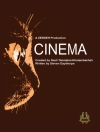Costa-Gavras is a seminal figure in French and international cinema. A master of the political thriller, he explores historical events through individual human stories, thereby involving his audience in past and contemporary traumas, from the horrors of the Holocaust through mid-century international state terrorism and totalitarianism to the current global financial crisis. With a career spanning half a century, he remains one of cinema’s most intriguing and enduring storytellers, theorists and political commentators. This collection of original essays charts and re-examines Costa-Gavras’s career from Un homme de trop (1967) to Le capital (2012). Readable and carefully researched, it will appeal to students and scholars of film, as well as fans of the director’s work.
Inhoudsopgave
1 Introduction: Costa-Gavras and microhistoriography: the case of Amen. (2002) – Homer B. Pettey
2 Un homme de trop (1967) and Section spéciale (1975): justice unravelled, a tale of two Frances (1941 and 1943) – Susan Hayward
3 Z (1969) and nationalism – Homer B. Pettey
4 The political efficacy of torture in The Confession (1970) – Hilary Neroni
5 Thriller and performance in State of Siege (1972) – Elizabeth Montes Garcés
6 What’s missing from Missing (1982) – Thomas Leitch
7 Selim Bakri’s quest for a Palestinian identity: Hanna K. (1983) and the Palestinian ‘permission to narrate’ – Matthew Abraham
8 Family Business (1986) and La Petite Apocalypse (1993) – Jennifer L. Jenkins
9 Betrayed (1988) and the ruptures of race and religion – Ian Scott
10 Music Box (1989): melodramatizing the Hungarian Holocaust – R. Barton Palmer
11 ‘Make humans the center of everything’: a cinema for conscious capitalism: Mad City (1997) and The Ax (2005) – Allen H. Redmon
12 Eden à l’Ouest (2009): border-crossing odyssey and comedy – Isolina Ballesteros
13 Representing the economy and neo-liberal subjectivity in Le Capital (2012) – Mark Bould
Index
Over de auteur
Homer B. Pettey is Professor of Film and Comparative Literature at the University of Arizona












